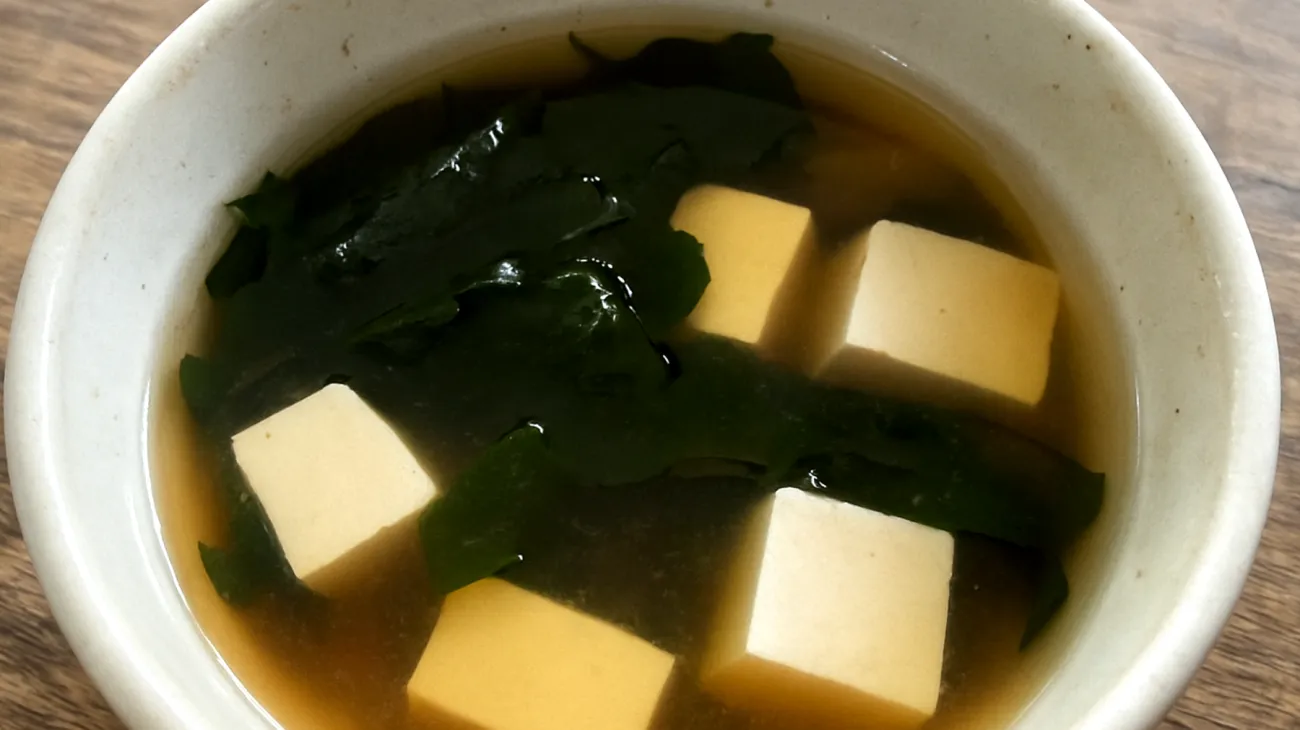For professionals navigating demanding schedules and the physical toll of extended desk hours, digestive wellness often takes a backseat to deadlines and meetings. The constant cycle of rushed meals, prolonged sitting, and elevated stress levels creates a perfect storm for sluggish digestion and compromised gut health. Enter miso soup with wakame seaweed and silken tofu—a deceptively simple Japanese remedy that’s gaining recognition for its impressive nutritional profile and potential to transform your evening routine.
The Science Behind Fermented Nutrition
Miso paste undergoes a fascinating microbial transformation through fermentation with koji, generating bioactive compounds including digestive enzymes such as amylase, protease, and lipase. These naturally occurring enzymes can aid in breaking down macronutrients, potentially improving your digestive efficiency after those grab-and-go lunches at your desk.
The fermentation process also produces beneficial bacteria with probiotic strains that vary depending on specific conditions. Clinical studies highlight benefits for symptoms like bloating, abdominal pain, and bowel regulation, especially for people dealing with irritable bowel syndrome or recovering from antibiotic use. Research consistently shows that individuals consuming fermented foods regularly develop increased microbial diversity—essentially building a more resilient digestive system.
Wakame: Your Evening Mineral Boost
Wakame seaweed brings an impressive mineral profile that directly addresses nutritional gaps common among high-stress professionals. This sea vegetable contains concentrated amounts of essential minerals like iodine, which supports thyroid function and metabolic regulation—particularly crucial when your body constantly operates in stress-response mode.
Beyond iodine, wakame delivers bioavailable magnesium, calcium, and potassium that support proper muscle function and nerve transmission. The unique compound fucoxanthin, responsible for wakame’s distinctive brown color, has caught researchers’ attention for its potential metabolic benefits. Small studies suggest it may support fat metabolism, though these effects remain modest and require further confirmation.
Silken Tofu: Gentle Protein for Recovery
Silken tofu provides easily digestible plant-based protein containing all essential amino acids, making it perfect for evening consumption. Its soft texture facilitates smooth digestion, delivering nutrients for tissue repair and neurotransmitter synthesis without overwhelming your system during wind-down hours.
Tofu contains tryptophan, a precursor to serotonin that influences sleep and mood regulation. While the tryptophan content is moderate compared to animal proteins, it can still support relaxation after stressful days. The isoflavones in tofu have been studied for their potential stress-response benefits, with some research suggesting they may help regulate cortisol levels.

Timing Your Evening Ritual
Nutritionists recommend consuming this healing bowl 1-2 hours before bedtime to maximize digestive benefits without interfering with sleep. The warm liquid activates parasympathetic nervous system responses, shifting your body from the day’s stress state into rest-and-digest mode.
The umami compounds in miso—glutamates, nucleotides, and organic acids—enhance satiety signals more effectively than simple flavors, preventing those late-night cravings that often sabotage stressed professionals. This natural appetite regulation comes with remarkably low caloric impact, typically ranging from 80-120 calories per serving.
Smart Preparation for Busy Schedules
Transform this ancient remedy into modern convenience by preparing concentrated miso base portions during weekend meal prep. Here’s your game plan:
- Dissolve miso paste with hot water in ice cube trays and freeze for instant portions
- Keep dried wakame and silken tofu on hand for quick assembly
- Choose low-sodium miso varieties to manage blood pressure concerns
- Start with white miso for milder flavor and less sodium content
Important Thyroid Considerations
While wakame’s iodine content benefits people with insufficient intake, those with existing thyroid conditions should consult healthcare providers before establishing regular consumption patterns. The concentrated iodine levels can pose risks for individuals with thyroid disorders, particularly hyperthyroidism, and may interfere with medications.
Dietitians suggest starting with smaller wakame portions—approximately one tablespoon dried—gradually increasing based on individual tolerance and medical guidance when appropriate.
The Ritual Element
The meditative aspects of slowly sipping warm miso soup create psychological benefits extending beyond nutrition. This mindful consumption practice helps transition your nervous system from daytime activation to evening restoration, supporting both digestive function and sleep preparation through behavioral consistency.
Regular incorporation of this evening ritual addresses a deeper wellness challenge facing modern professionals: creating sustainable practices that support immediate recovery and long-term digestive health. The combination of probiotics, digestive enzymes, essential minerals, and quality proteins works systematically to support the gut-brain axis often disrupted by chronic workplace stress.
For professionals seeking genuine digestive restoration rather than temporary symptom relief, miso soup with wakame and silken tofu represents a dietary practice supported by both centuries of traditional wisdom and emerging nutritional science. It offers a practical, evidence-based approach to managing the unique digestive challenges that come with our modern work lives, transforming your evening routine into a powerful tool for wellness recovery.
Table of Contents

